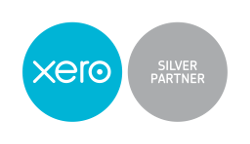Being a franchisee gives you a trusted brand name to trade under alongside support and training to help you make a success of your new business. Understanding how your franchise fees work regarding your tax accounts is really important to enable you to get the most from your franchise fee.
How are franchise fees treated for tax purposes? Read on to find out more…
Accounting for franchise
The royalty fee
The royalty fee is simply another term for the franchise fee and is the money that the franchisee pays to the franchisor for the use of their branding and trademarks. In any franchise system, there are two types of royalty fees:
Initial fees
These fees count as part of the cost of setting up your business and have to be completed before you begin. These are effectively a kind of capital expenditure and aren’t tax-deductible whether you pay them all in one go or in instalments. Your territory, vehicle, equipment, and marketing costs are all counted as capital expenditure.
Ongoing fees
Following the payment of the initial fees and trading has begun there’ll be an ongoing fee to pay which may be monthly, quarterly, or annual. The level of this fee can vary and is usually calculated as a percentage of gross sales on average working out at about 7-8%.
Ongoing franchise fees are a revenue expense according to HMRC which means that they are tax-deductible.
Amortisation of franchise fees
This technical term means a gradual write-off of the initial cost of an asset over time. This asset can be tangible like equipment or a vehicle, or it can be intangible such as your initial franchise fee.
Amortisation is an accounting strategy that is used to reduce the existing balance on a loan for example and is the practice of spreading an intangible asset’s cost over that useful asset’s life. Examples of intangible assets include patents, copyrights, and trademarks.
Amortisation expenses can be deducted to reduce your tax liability, lowering your taxable earnings and reducing your year-end tax bill. You can deduct a portion of the cost of an intangible asset for each year that it’s in service until it has no further value.
Need outsourced bookkeeping services in London?
A trusted and experienced tax accountant in London will provide you with a franchise accounting service that takes away all the stress of submitting an accurate tax return on time. Specialist accountants will handle all accounting paperwork and prepare your annual accounts and business reports so that you don’t have to worry.
You’ll be able to speak to your qualified accountant any time that you need to. And get a fast response by phone or email. Your resources will be used wisely and you’ll be able to monitor all of your accounts online every minute of the day.
Outsourced bookkeeping rates in the UK can range from £8 per hour to £16 per hour, but many accounting packages are available starting from £20 per month which include a VAT return service for an additional fee. You can discuss an all-in package that suits you and your business needs and that will take care of any tax payable on your franchise fees.



0 Comments